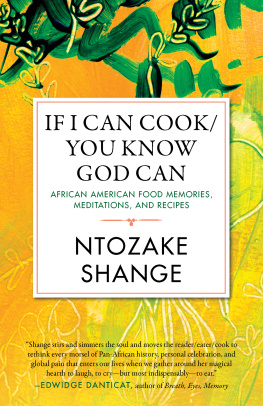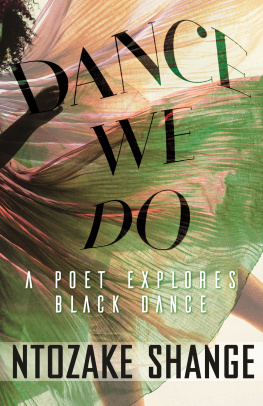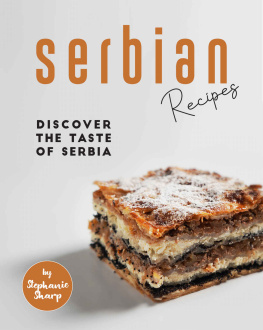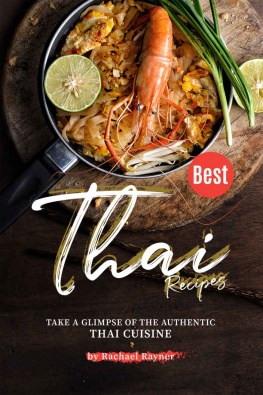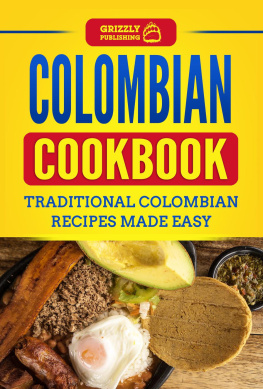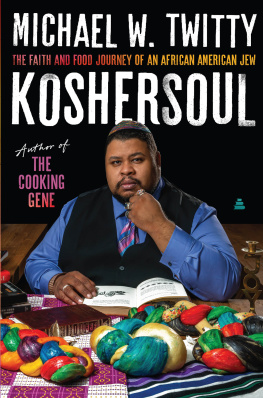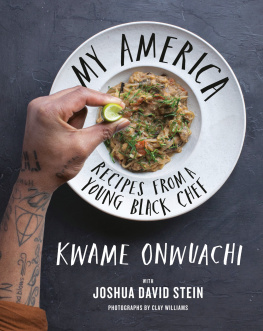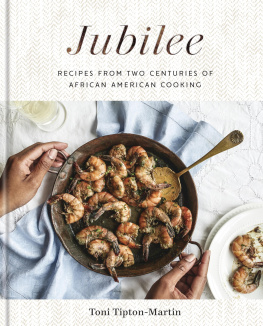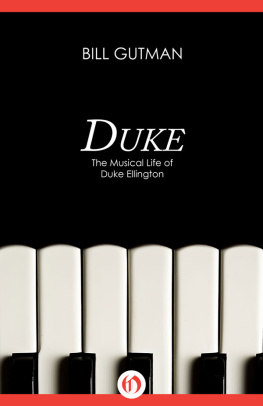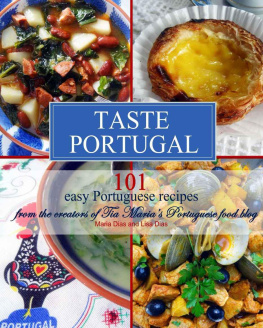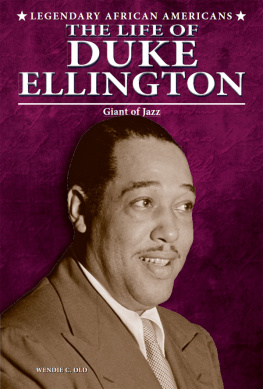Contents
Guide
PRAISE FOR If I Can Cook/You Know God Can
What those other cookbooks aim for, but miss, Ntozake Shange achieves in revolutionary splendor. She wraps history and legend and recipes and folklore into one big roti. She makes a gumbo out of memories and laughter and recipes and black vernacular. She throws spicy metaphors into recipes that have traveled from Africa and Brazil and the Caribbean and Brixton, England.
American Visions
This book is the first one I recommend to all cooks to understand the soul of our food. This foundational and profound memoir was my gateway into understanding the culinary poetry that is behind who we are. Its as indispensable as hot sauce.
Michael W. Twitty, author of The Cooking Gene: A Journey Through African American Culinary History in the Old South
This culinary memoir, filled with perusals of history, literature, vernacular, culture, and philosophy, is as valuable for its inspirational and factual nuggets as it is for its unusual recipes.
Carmela Ciuraru, Entertainment Weekly
A fervent, richly impassioned chronicle of African American experience.
Booklist
At first, If I Can Cook/ You Know God Can: African American Food Memories, Meditations, and Recipes by Ntozake Shange might seem to be a slim volume; do not be fooled. It is a rich, dense gumbo of food memories, history, recipes, and the special kind of magic that only Shange can create. She weaves a word tapestry of the history of the African Atlantic world that is wondrous indeed. I loved it the first time around; in this new version, it, like the rainbow, is more than enuf.
Jessica B. Harris, author of My Soul Looks Back: A Memoir and High on the Hog: A Culinary Journey from Africa to America
Shange weaves together a book that is both a celebration of the nourishing symbolism of food and community in African-American and Caribbean life... and a gentle introduction to the craft of preparing wholesome food.... An entertaining and deeply personal celebration of African American cuisine and the life (and history) it represents.
Kirkus Reviews
Ntozake Shange... has unleashed her talents on the culinary form. The result is... a rift on the cookbook. [It is] the celebration of a cuisine that Shange, in a lovely phrase, calls the fare of the misbegotten.
Kim ODonnel, Washington Post
In If I Can Cook/You Know God Can, Ntozake Shange welcomes us into her home like kin and sits us down at Zakis kitchen table. We smell food simmering on the stove; we hear inside jokes and family legends; we journey back and back and back. An epic work of memoir, archive, cookbook, diasporic history, and culinary ethnographythis book is simply a remarkable gift.
Morgan Parker, author of There Are More Beautiful Things Than Beyonc
Ntozake Shange has always been a salve. Her exploration of food as a conversation about ancestral logic, as story, as medicine, as road map, as celebration, and as reclamation is delicious... from baked ham and chitlins in the American South, to Trinidadian shark meat and Brazilian rice, to sugarcane in Cuba, the sweet and sticky of it and the weight of how grueling the labor was for the enslaved Africans who had to harvest it, and to gumbo... yes gumbo, because what better dish describes the alchemy of the African American experience? The necessity of invention and memory, and the ways in which food can give you a sense of belonging and the story of a peoplehow they lived, and how they remain.
Dominique Christina, author of Anarcha Speaks
Listen. To sister Shanges rainbow recipes of light and love. Listen. To the stirring of her pots and pans with food that fuels our movements and memories. Cant wait for her to cook me up some of her magic so we can eat and laugh and be. Stay human.
Sonia Sanchez, poet and activist
Shange stirs and simmers the soul and moves the reader/eater/cook to rethink every morsel of Pan-African history, personal celebration, and global pain that enters our lives when we gather around her magical hearth to laugh, to crybut most indispensablyto eat.
Edwidge Danticat, author of Breath, Eyes, Memory
Acclaimed playwright Ntozake Shange gives a bravura performance in If I Can Cook You Know God Can, a slender and captivating collection of African-American food memories, meditations and recipes.
Kathy Martin, Miami Herald
Dont let Shanges informal tone fool you: this is at heart a deconstructionist work, but one infused with a down-home feel and vernacular rhythms.... This slim, lively book stimulates and elucidates, and is well worth chewing on.
Luis H. Francia, The Village Voice
If I Can Cook/You Know God Can is a tour-de-force of food, the African Diaspora and life. Plenty of gusto can be found within these pages.
Jason Zappe, Copley News Service
Ntozake Shange, in her intricately woven narrative of essays, insights and recipes, gives food its proper perspective within the context of cultural survival. This is not a cookbook, its a food lesson.... Shange does our development justice.
Deatra Haime, Mosaic Literary Magazine
W ORKS BY N TOZAKE S HANGE
{plays}
For Colored Girls Who Have Considered Suicide When the Rainbow Is Enuf
Three Pieces
{novels}
Sassafrass, Cypress & Indigo
Betsey Brown
Liliane: Resurrection of the Daughter
{poetry}
The Love Space Demands: A Continuing Saga
Nappy Edges
A Daughters Geography
Ridin the Moon in Texas
{nonfiction}
If I Can Cook / You Know God Can
{childrens}
I Live in Music (poetry)
Whitewash (nonfiction)

To Ellie, my mother, who could make a kitchen sing and swing, make it a sacred or profane gathering, a spooky, funny place, a refuge, a hallowed midnight meeting with her daughter.
Recipes
Foreword

I first met Zaki, as I shall call her from now on, in 1977 in Manhattan. It was a loft party and she was new in town. The room was filled with divas and devos. And she still stood out with an energy that charged the room. Folks were asking, Who is that? Someone said, Shes that rainbow girl. Someone else said, Shes a gypsy. Others said, Shes a dancer, a poet. Uh uhhh, she is all that.
Many people were surprised that the colored girl who was all that was writing a cookbook. I wasnt. It was obvious from her earlier works, especially Sassafras, Cypress & Indigo, that a cookbook was simmering.
Zaki, in the tradition of Dumas, Colette, Amado, and other writers, understands the importance and connections of food and culture and how they are entwined in our everyday lives and manifest on our tables.
When I was growing up in Carolina low country, I didnt know the word culture. We just did the things we did the way we did them because thats the way they were done. We said what we said because we said it. I had no idea that many things we did in our everyday life reflected an African connection. When Gramama Sula said, Yenna come nyam, we came to the table. I had no idea nyam was an African root word for to eat that can still be heard throughout the Americas. Besides, anything African was to be jettisoned into the Atlantic. Lots of people came to study the ways and customs of us low-country Geechee/Gullah folks, but no persons or books said, Its a good thing. Honor the culture.

